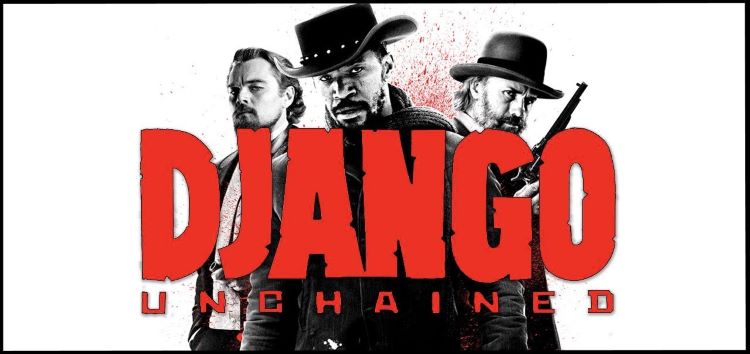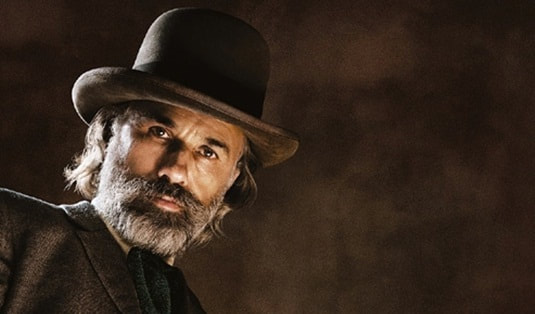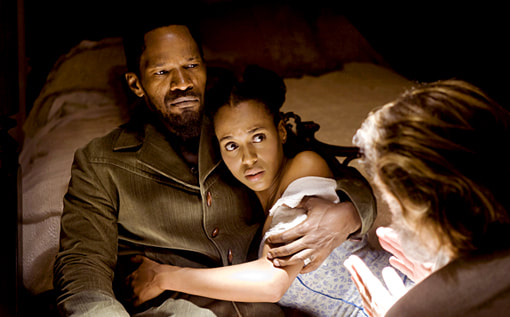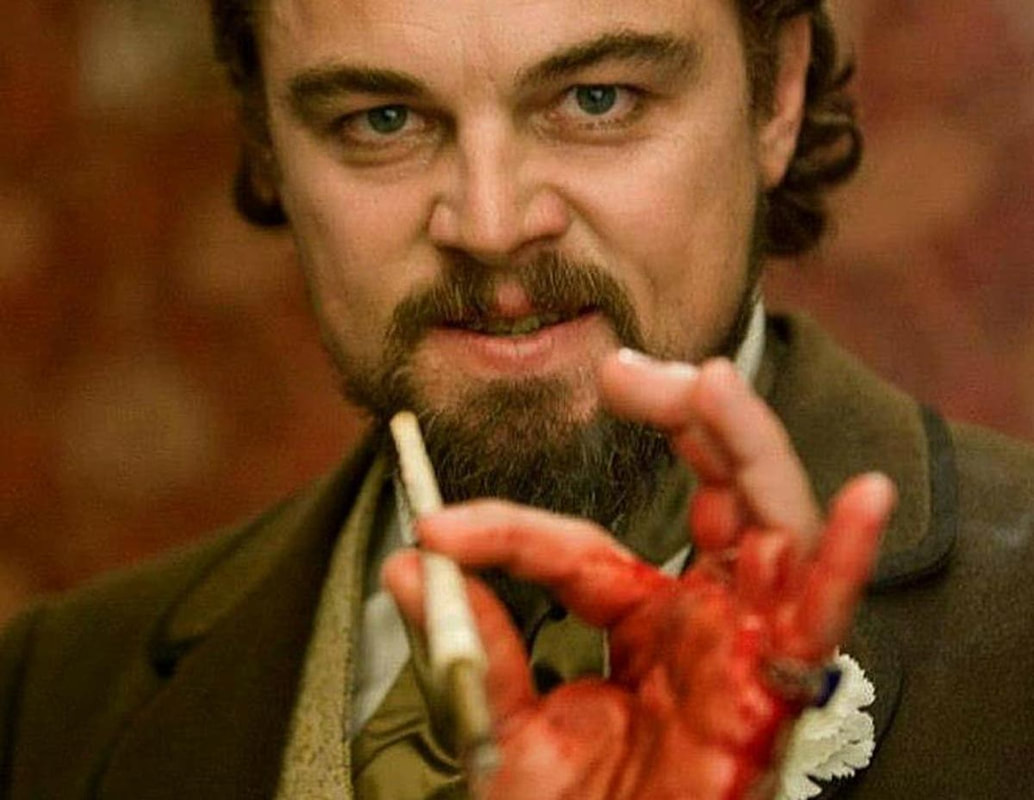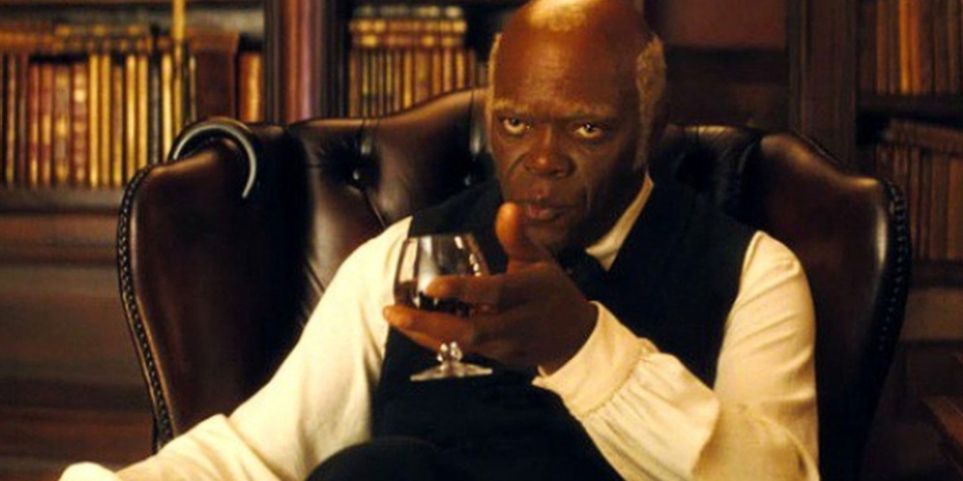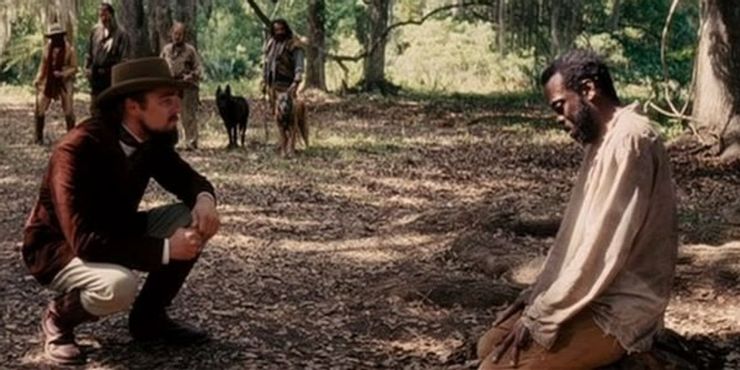Revisiting Django Unchained
THERE IS SOMETHING ABOUT HOW CHRISTOPH WALTZ works his magic in a Tarantino film, he opens his mouth and you are mesmerized. Just thoroughly immersed in this polite and articulate man either making you love him or hate and fear him. Ï realize it’s just words, a man weaving magic with words, but you know there are actors who are so beautiful you just look at them and whole worlds are built on their beauty and then there are the actors like Waltz -- you listen to them, watch them work their literary magic and really, as with some relationships, sometimes the talk is better than the sex.
The rest of the world outside of Europe would have probably continued to have never heard of Christoph Waltz if not for Quentin Tarantino, and the actor probably sees this as both a blessing and a curse, but speaking as a fan, I am just damn grateful for the pleasure of watching Waltz perform on screen.
The rest of the world outside of Europe would have probably continued to have never heard of Christoph Waltz if not for Quentin Tarantino, and the actor probably sees this as both a blessing and a curse, but speaking as a fan, I am just damn grateful for the pleasure of watching Waltz perform on screen.
Christoph Walz playing fan favorite Dr. King Schultz.
He won his second Oscar Award for Best Supporting Actor for this role.
He won his second Oscar Award for Best Supporting Actor for this role.
Django Unchained is an older film made almost ten years ago in 2012, but it seems to be trending again on Netflix. I recently rewatched it and was pleasantly surprised that I still found it fresh and I was still halfway in love with this over-the-top revenge movie that relishes in its own swagger.
As with most Tarantino films Django is a homage to an old film genre, in this case the old spaghetti westerns popular in the 1960s. While reading up for this article, I found some really entertaining tidbits about the movie. Such as Leonardo DiCaprio’s scene where he hurt his hand actually was a real injury – he did hurt his hand in that scene. But rather than stop, he continued the scene to its end and he was later brought to hospital for stitches. Knowing this fact was a wow moment for me, like “wow, that bloody hand that he wiped on Broomhilda’s face was actually real blood and the shock and horror on actress Kerry Washington’s face was probably real as well”. I mean Jesus, DiCaprio is a literal maniac no? Give that man some Respect.
I also found out too late that there is an original Django movie made in 1966 by Director Sergio Corbucci in Italy. It starred this handsome (albeit scruffy) cowboy with blinding blue eyes played by the actor Franco Nero. Said actor played a cameo in Django Unchained as the Italian slave owner named Amerigo Vessepi, who’s slave lost the mandingo fight in that notoriously horrid scene. Later on, Vessepi and Django talk and when Django spells out his name for Vessepi, saying the D is silent, the Italian says “I know” and that scene was a juicy little wink to those in the audience who knew that he was in fact the original Django. I love that in Tarantino movies, it just tickles the film geek in me. It makes everything so much better when I rewatch them, and yes, I always rewatch Tarantino.
So for those who have not watched the film and would like to check it out while it’s still on Netflix Asia, Django is Tarantino’s take on the Western movie genre and it is a riotous revenge movie with its fantastical black protagonist playing a freed slave turned bounty hunter who becomes the fastest gun in the South. The man who frees him is a German bounty hunter named Dr. King Schultz who trains Django and becomes his mentor/partner. Dr. Schultz, played by the aforementioned Christoph Waltz is a whole other animal and I could write pages rhapsodizing about this character. The premise of a learned old-world gentleman being a cold blooded bounty-hunting killer in the wild west is so far fetched it is irresistably entertaining. Only the strange mind of Tarantino would think up such an outlandish character and somehow make him the real star of the whole film.
My favorite scene with Dr. Schultz is the tense encounter with a town’s Marshall and its citizens right after he kills their Sheriff in the middle of the street in front of everybody. Schultz’s verbose way of explaining the Sheriff’s murder to the whole town as if it’s the most normal and logical occurrence, with him audaciously telling the Marshall that they in fact owe him $200 for killing their beloved Sheriff (who turns out is a wanted criminal) is such a “fuck you” moment, it is breathtaking. One practically feels the movie’s glee in building up this scene up to the point where the audience realizes that this strange professorly German, who speaks perfect english, is the baddest badass in the west.
As Django himself says with awe at the end of this scene: “God damn.”
As with most Tarantino films Django is a homage to an old film genre, in this case the old spaghetti westerns popular in the 1960s. While reading up for this article, I found some really entertaining tidbits about the movie. Such as Leonardo DiCaprio’s scene where he hurt his hand actually was a real injury – he did hurt his hand in that scene. But rather than stop, he continued the scene to its end and he was later brought to hospital for stitches. Knowing this fact was a wow moment for me, like “wow, that bloody hand that he wiped on Broomhilda’s face was actually real blood and the shock and horror on actress Kerry Washington’s face was probably real as well”. I mean Jesus, DiCaprio is a literal maniac no? Give that man some Respect.
I also found out too late that there is an original Django movie made in 1966 by Director Sergio Corbucci in Italy. It starred this handsome (albeit scruffy) cowboy with blinding blue eyes played by the actor Franco Nero. Said actor played a cameo in Django Unchained as the Italian slave owner named Amerigo Vessepi, who’s slave lost the mandingo fight in that notoriously horrid scene. Later on, Vessepi and Django talk and when Django spells out his name for Vessepi, saying the D is silent, the Italian says “I know” and that scene was a juicy little wink to those in the audience who knew that he was in fact the original Django. I love that in Tarantino movies, it just tickles the film geek in me. It makes everything so much better when I rewatch them, and yes, I always rewatch Tarantino.
So for those who have not watched the film and would like to check it out while it’s still on Netflix Asia, Django is Tarantino’s take on the Western movie genre and it is a riotous revenge movie with its fantastical black protagonist playing a freed slave turned bounty hunter who becomes the fastest gun in the South. The man who frees him is a German bounty hunter named Dr. King Schultz who trains Django and becomes his mentor/partner. Dr. Schultz, played by the aforementioned Christoph Waltz is a whole other animal and I could write pages rhapsodizing about this character. The premise of a learned old-world gentleman being a cold blooded bounty-hunting killer in the wild west is so far fetched it is irresistably entertaining. Only the strange mind of Tarantino would think up such an outlandish character and somehow make him the real star of the whole film.
My favorite scene with Dr. Schultz is the tense encounter with a town’s Marshall and its citizens right after he kills their Sheriff in the middle of the street in front of everybody. Schultz’s verbose way of explaining the Sheriff’s murder to the whole town as if it’s the most normal and logical occurrence, with him audaciously telling the Marshall that they in fact owe him $200 for killing their beloved Sheriff (who turns out is a wanted criminal) is such a “fuck you” moment, it is breathtaking. One practically feels the movie’s glee in building up this scene up to the point where the audience realizes that this strange professorly German, who speaks perfect english, is the baddest badass in the west.
As Django himself says with awe at the end of this scene: “God damn.”
The runaway slaves Django and his wife Broomhilda. played by actors Jaime Foxx and Kerry Washington.
The second half of the film is where the revenge comes in, with Django and Dr. Schultz attempting to rescue Django’s wife (another fantastical character here, a black slave woman who speaks german named Broomhilda von Shaft) from CandyLand, the plantation of racist par excellance Calvin Candie played by Leonardo DiCaprio. This is the part where the cynical bounty hunter Schultz is revealed to be a man with a heart of gold, risking his own life for an endeavor that really shouldn’t involve him at all.
Needless to say, this second half is more of the same fun, funny and swaggering violence typical of a Tarantino film. Many reviews of the film have critiqued Django Unchained for its problematic rendering of slavery and racism. I won’t delve into that any longer, I tend to agree with most of the critiques of the film but this isn’t that review. With this rewatch, I am shamelessly just here for the popcorn munching fun of a Tarantino film in all its glorious kitschy self reflexivity.
This part of the movie will introduce you to other gems such as Don Johnson playing the character Big Daddy, that funny idiot of a plantation owner who is one of Django’s more gratifying kills. I especially love the skit where Big Daddy and his Ku Klux Klan thugs argue during a raid over not being able to see through the slits in their ridiculous cheese cloth masks, a riotous exposition on racists being a bunch of feckin imbeciles.
And then there is Samuel L. Jackson playing a parody of a Head house slave (the lowest of the worst kinds of “negro” according to Django). For this role Jackson seems to have enjoyed becoming the “most hated negro in cinematic history.” His character Stephen dies in a burst of flames at the end of the movie screaming “Django!!!” while Django himself gets his revenge and his wife back in his arms. His horse dancing its way to their happy ending.
Of course, the icing on this cake will always be Calvin Candie. He is a belly-full goodness of a villain, wonderfully hateful and just as articulate as our charming Dr. Schultz. Watching DiCaprio play this racist monster to the hilt is a work of art. Candie is a man who would feed his runaway slave to a pack of dogs without blinking. And we see someone like Schultz (who kills people for a living) react with a subdued kind of dread to Candie’s racism and it is as if we are Schultz himself, an outsider forced to reckon with all the bloody horror that is slavery in the American south of the 1800s.
Later on, we see the extent of Schultz’s contempt for Candie and the kind of slaver he embodies -- because indeed, he is such a despicable sadist of a man, Dr. Schultz would rather shoot him than shake his hand to close a deal. Dr. Schultz is himself shot to death as a result of having killed Calvin Candie, but before he dies, he calmly turns toward Django apologizing with a shrug and a nonchalant “I’m sorry, I couldn’t resist.”
What did I tell you, a badass ‘til the bloody end.
Needless to say, this second half is more of the same fun, funny and swaggering violence typical of a Tarantino film. Many reviews of the film have critiqued Django Unchained for its problematic rendering of slavery and racism. I won’t delve into that any longer, I tend to agree with most of the critiques of the film but this isn’t that review. With this rewatch, I am shamelessly just here for the popcorn munching fun of a Tarantino film in all its glorious kitschy self reflexivity.
This part of the movie will introduce you to other gems such as Don Johnson playing the character Big Daddy, that funny idiot of a plantation owner who is one of Django’s more gratifying kills. I especially love the skit where Big Daddy and his Ku Klux Klan thugs argue during a raid over not being able to see through the slits in their ridiculous cheese cloth masks, a riotous exposition on racists being a bunch of feckin imbeciles.
And then there is Samuel L. Jackson playing a parody of a Head house slave (the lowest of the worst kinds of “negro” according to Django). For this role Jackson seems to have enjoyed becoming the “most hated negro in cinematic history.” His character Stephen dies in a burst of flames at the end of the movie screaming “Django!!!” while Django himself gets his revenge and his wife back in his arms. His horse dancing its way to their happy ending.
Of course, the icing on this cake will always be Calvin Candie. He is a belly-full goodness of a villain, wonderfully hateful and just as articulate as our charming Dr. Schultz. Watching DiCaprio play this racist monster to the hilt is a work of art. Candie is a man who would feed his runaway slave to a pack of dogs without blinking. And we see someone like Schultz (who kills people for a living) react with a subdued kind of dread to Candie’s racism and it is as if we are Schultz himself, an outsider forced to reckon with all the bloody horror that is slavery in the American south of the 1800s.
Later on, we see the extent of Schultz’s contempt for Candie and the kind of slaver he embodies -- because indeed, he is such a despicable sadist of a man, Dr. Schultz would rather shoot him than shake his hand to close a deal. Dr. Schultz is himself shot to death as a result of having killed Calvin Candie, but before he dies, he calmly turns toward Django apologizing with a shrug and a nonchalant “I’m sorry, I couldn’t resist.”
What did I tell you, a badass ‘til the bloody end.
In this intense scene, Leonardo DiCaprio hurt his hand for real but he continued the scene
and had to get stitches afterwards.
and had to get stitches afterwards.
Samuel L. Jackson playing Stephen, the head house slave who according to Jackson himself is
the "the most hated negro in cinematic history"
the "the most hated negro in cinematic history"
Calvin Candie and the runaway slave D'Artagnan a moment before the most abominable scene in the movie
where this poor man was later fed to a pack of dogs.
where this poor man was later fed to a pack of dogs.

